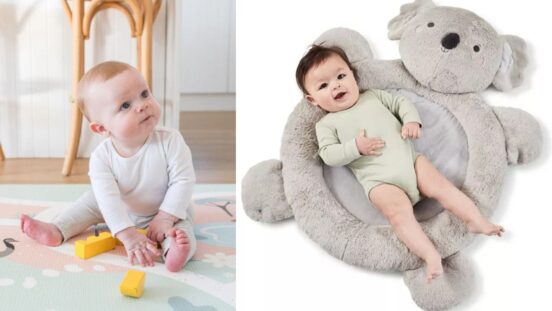2 week old: Getting to know your newborn
Newborns are great teachers. In a few days, they can make you more tolerant and selfless with your time. Here’s what you need to know about your second week with bub.
Feeding, decoding your baby’s cries and sleep
Feeding
Breastfeeding is best if you can do it, as breastmilk contains all the nutrients your growing baby needs. It's also a great way for you and your baby to bond. Nipple soreness is more than likely caused by your baby attaching incorrectly.
If you find breastfeeding is not going well, don't assume it's because you're not producing enough milk. Breastfeeding works on a supply and demand basis, so the more your baby feeds, the more milk you will produce.
If you're having issues with feeding, seek support from a midwife, a lactation consultant or the Australian Breastfeeding Association.
Crying
One of the first lessons in parenting start with your baby's crying, which is her way of communicating. At first it may take a while to decipher what it is your baby needs, but the most common reasons for a baby to cry are if she's hungry, sleepy or has a full nappy. But he might also cry because she's uncomfortable or because she wants to be cuddled, rocked or carried.
Soon you'll become attuned to your baby's cries and able to figure out what she wants in most situations.

Getting to know your two-week old. (Image: Getty Images)
Sleep
Newborn babies usually sleep for around 16 hours out of every 24 in short bursts throughout the day and night, and in blocks of up to four hours. The duration of a newborn baby's sleep cycle is about 40 minutes (an adult's is about 90 minutes).
To Reduce the Risks of Sudden Unexpected Deaths in Infancy (SUDI), including SIDS and Fatal Sleep Accidents, follow these safe sleeping guidelines from Red Nose:
1. Sleep baby on the back from birth, not on the tummy or side
2. Sleep baby with head and face uncovered
3. Keep baby smoke free before birth and after
4. Provide a safe sleeping environment night and day
5. Sleep baby in their own safe sleeping place in the same room as an adult care-giver for the first six to twelve months
6. Breastfeed baby




